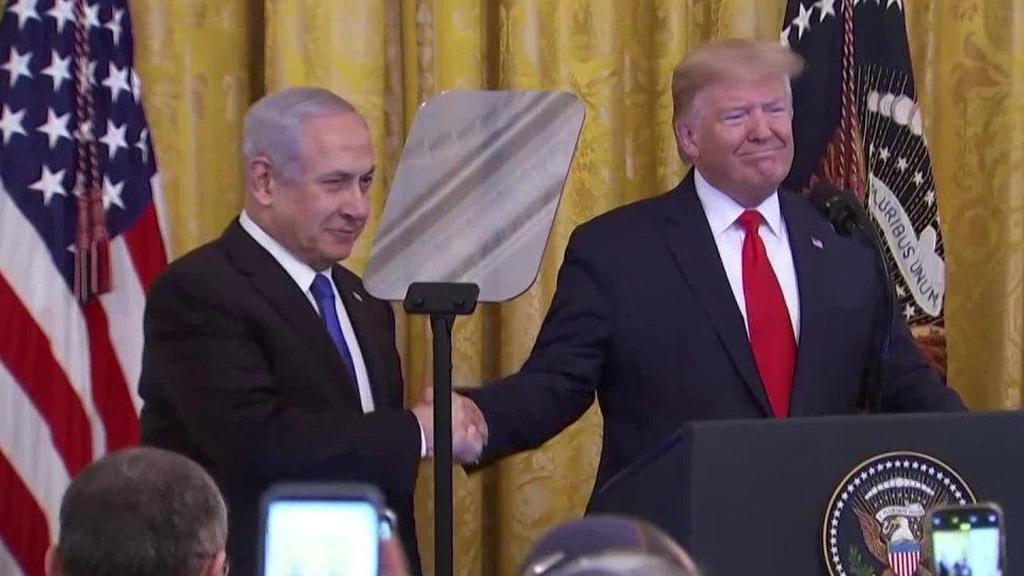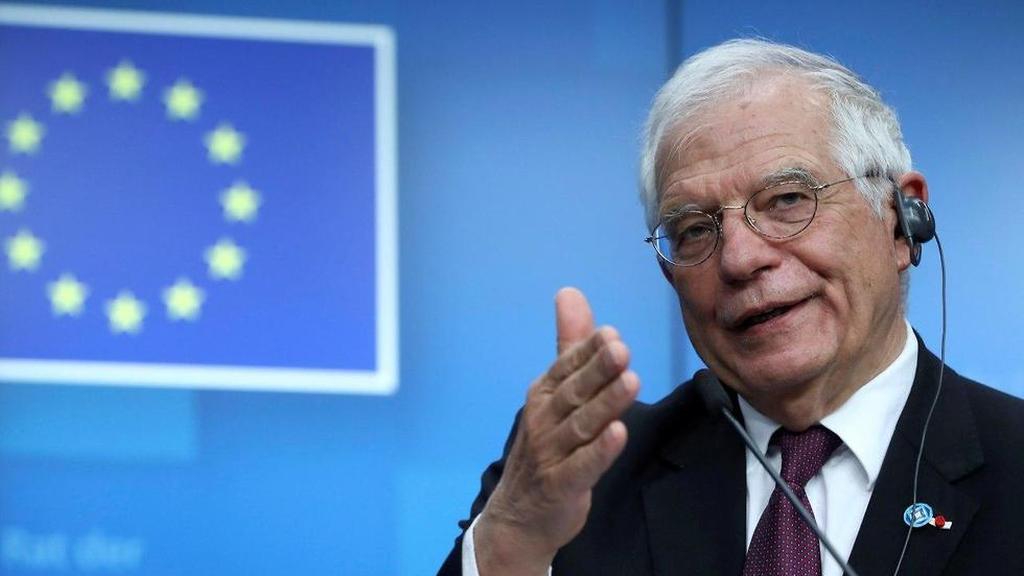Getting your Trinity Audio player ready...
President Reuven Rivlin called on Israel and the Palestinians Tuesday to use U.S President Donald Trump’s peace plan as a foundation for renewed direct negotiations between the two parties.
"As we continue to face the threats from Iran and its proxies today, including the terrorist organizations in Gaza, we also look to the opportunities and challenges of the future. The vision for peace which President Trump presented last week, recognizes Israel's need to retain security responsibility for all areas west of the Jordan River. Israel must always be able to defend itself by itself," Rivlin said as he hosted some 30 U.S. Armed Forces officers visiting Israel.
3 View gallery


President Reuven Rivlin hosts some 30 U.S. Armed Forces officers visiting Israel
(Photo: GPO)
"Yet, while we will never compromise the security of our citizens, I believe that a vision of peace with our Palestinian neighbors is a realistic one. Israelis and Palestinians are not doomed to live together, it is our destiny to live together. I hope that both sides will take this opportunity to restart direct negotiations.”
Trump's plan, which was unveiled last Tuesday, would foresee the eventual creation of a Palestinian state, but it falls far short of minimal Palestinian demands and would leave sizable chunks of the West Bank in Israeli hands.
The American president's so-called Deal of the Century was welcomed by Prime Minister Benjamin Netanyahu, but Palestinian Authority President Mahmoud Abbas has dismissed it as "nonsense." Gulf Arab states also rejected the White House plan as "biased."
3 View gallery


U.S. President Donald Trump, flanked by Prime Minister Benjamin Netanyahu, unveils his Mideast peace plan at the White House in January
(Photo: Reuters)
While Israeli officials were present for its unveiling, no Palestinian representatives attended.
Earlier Tuesday, the European Union rejected Trump's proposed plan and expressed concern about Israel's plans to annex more Palestinian land, mainly the Jordan Valley and the northern Dead Sea, after Netanyahu confirmed his intentions to move forward with plans to annex the West Bank territories.
In a statement, EU Foreign Policy Chief Josep Borrell underlined the continental bloc's commitment to a two-state solution, based on the 1967 armistice lines drawn after Israel's overwhelming victory in the Six-Day War, with the possibility of mutually agreed land-swaps, made up of the state of Israel and "an independent, democratic, contiguous, sovereign and viable state of Palestine."
Borrell said the U.S. initiative "departs from these internationally agreed parameters."
"To build a just and lasting peace, the unresolved final status issues must be decided through direct negotiations between both parties. This includes notably the issues related to borders, the status of Jerusalem, security and the refugee question," Borrell said. "We are especially concerned by statements on the prospect of the annexation of the Jordan Valley and other parts of the West Bank."
The Palestinians seek all of the West Bank and East Jerusalem - areas captured by Israel from Jordan in the Six-Day War - for an independent state and the removal of more than 700,000 Israeli settlers from these areas, but Trump's plan sides heavily with Netanyahu's hard-line nationalist vision for the region and shunts aside many of the Palestinians' core demands.


